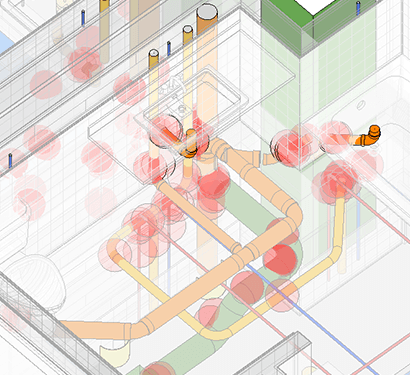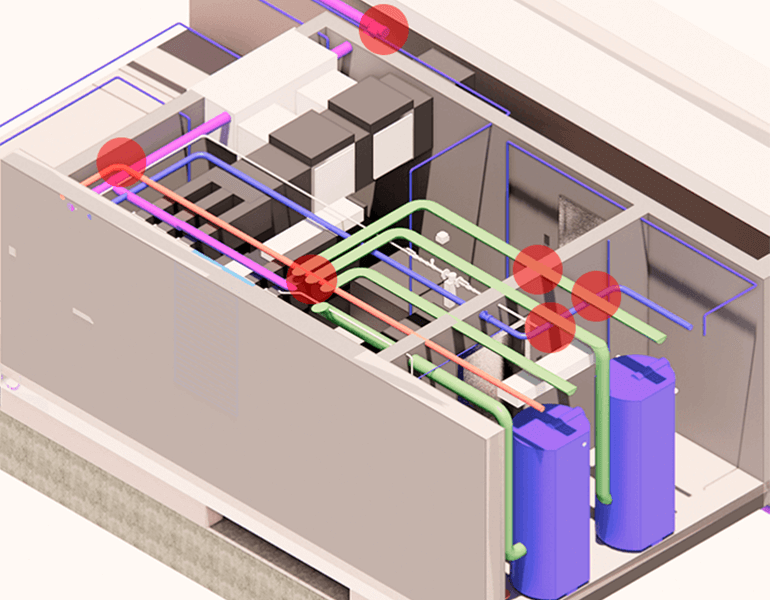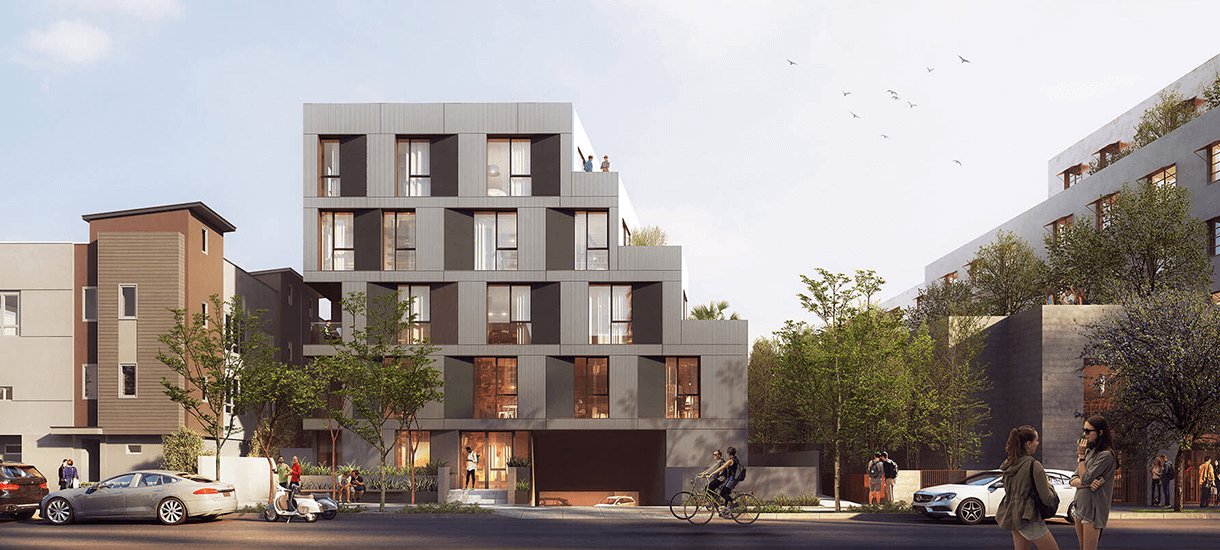The greater the complexity of a project, the greater the chances of encountering issues that could have been foreseen earlier through Design Coordination services. Here is where the DC expert can add value, by identifying problems before they come to light.
For the seamless development of a project, it is necessary to identify its most relevant pieces and understand how they interact with each other, coordinating and making them work efficiently. A comprehensive Design Coordination approach considers the different actors, facilities, methodologies, regulations, and all the elements involved in a project.

Coordination made effortless: spot earlier, solve faster
Clash Detection is one of the primary services of Design Coordination. It allows the coordination of the layout of all the systems involved in a project, managing to identify the interferences that could occur between them. This implies being transparent about the route and location of all the wiring, pipes, networks, ducts, and other physical elements that will be installed and handled by the construction team and its specialists.

The work of these experts is also contemplated within the coordination efforts, so they are in sync with the interferences detected in the MEP facilities and the needs of a project.
It is essential to remember that implementing this service at the design development stage allows you to anticipate typical scenarios during the construction phase and prevent frequent inconveniences, achieving significant cost and time savings.
From theory to practice
Our team has provided Clash Detection services for many residential projects located in Los Angeles. The highlight of all the cases was detecting critical coordination issues and avoiding cost overruns and delays.
Orange Flats is a 43,000 sq. Ft. multi-family project located in Hollywood, designed by Office Untitled, developed by MCAP Partners, and with Turner and Townsend as its Construction Manager. Our team performed a One-Round BIM Clash detection process based on the Revit models provided by the client design consultants.

"Corbis' team added value and helped us to maximize the project's construction site with their BIM expertise and coordination skills."
Alex Massachi – President at MCAP Partners
Just over a week later, we presented all the reviewed material to the client, where we reported the interferences that could become the most critical, along with recommendations and possible solutions to speed up the pace of the project. The early detection of coordination issues between the MEP facilities helped to save money and time.
Uniting efforts with MCAP and all the stakeholders allowed us to identify and solve conflicts in anticipation. This way, construction stayed on budget, and the number of RFIs was significantly reduced at that stage.
We can help you see the big picture of your project –the facilities, consultants' schedules, and every stakeholder involved, from start to finish of the whole project life cycle. Our team is trained to implement Clash Detection and other valuable services such as Plan Coordination Review.
These services allow you to resolve typical and critical issues before construction, saving you money, time, and many headaches.